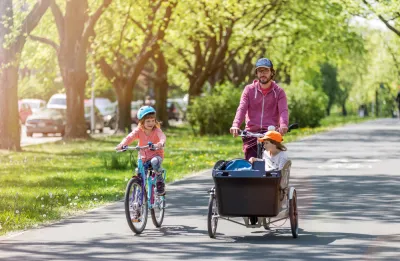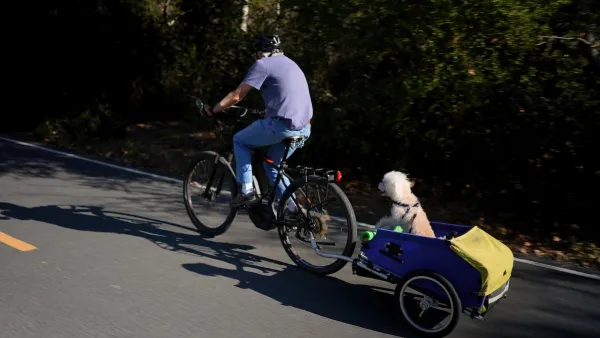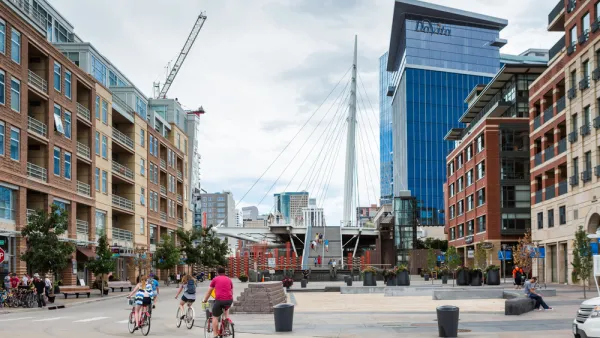The state is directing $13 million to a program to help low-income Californians purchase electric and cargo bikes, but limited bike infrastructure keeps many California streets unsafe for cyclists.

The California Air Resources Board (CARB) is launching a program to encourage more Californians to replace vehicle trips with electric bikes, reports Ryan Fonseca in the Los Angeles Times.
“CARB’s current proposal is to offer a point-of-sale incentive (different from a rebate) of $1,000 off a standard e-bike, with an additional $750 discount for larger cargo bikes, adaptive bikes or recumbent bikes.” The program will be available to residents making less than 300 percent of the federal poverty line, or roughly $83,000 for a family of four. The program was allocated $13 million by the state, with future funding dependent on the state budget.
But promoting more bicycling on dangerous roads also puts people at risk, the article notes. “Many of the lower-income communities that would benefit from the program are also the most dangerous for people to walk or bike. That’s tied to historic neglect, with cities investing less in safety infrastructure (like protected bike lanes) in neighborhoods where more residents rely on walking and transit, while also building major arterial roadways through those communities.”
FULL STORY: There’s a plan to make e-bikes more affordable for low-income Californians. Here’s what to expect

National Parks Layoffs Will Cause Communities to Lose Billions
Thousands of essential park workers were laid off this week, just before the busy spring break season.

Retro-silient?: America’s First “Eco-burb,” The Woodlands Turns 50
A master-planned community north of Houston offers lessons on green infrastructure and resilient design, but falls short of its founder’s lofty affordability and walkability goals.

Delivering for America Plan Will Downgrade Mail Service in at Least 49.5 Percent of Zip Codes
Republican and Democrat lawmakers criticize the plan for its disproportionate negative impact on rural communities.

Test News Post 1
This is a summary

Test News Headline 46
Test for the image on the front page.

Balancing Bombs and Butterflies: How the National Guard Protects a Rare Species
The National Guard at Fort Indiantown Gap uses GIS technology and land management strategies to balance military training with conservation efforts, ensuring the survival of the rare eastern regal fritillary butterfly.
Urban Design for Planners 1: Software Tools
This six-course series explores essential urban design concepts using open source software and equips planners with the tools they need to participate fully in the urban design process.
Planning for Universal Design
Learn the tools for implementing Universal Design in planning regulations.
EMC Planning Group, Inc.
Planetizen
Planetizen
Mpact (formerly Rail~Volution)
Great Falls Development Authority, Inc.
HUDs Office of Policy Development and Research
NYU Wagner Graduate School of Public Service





























